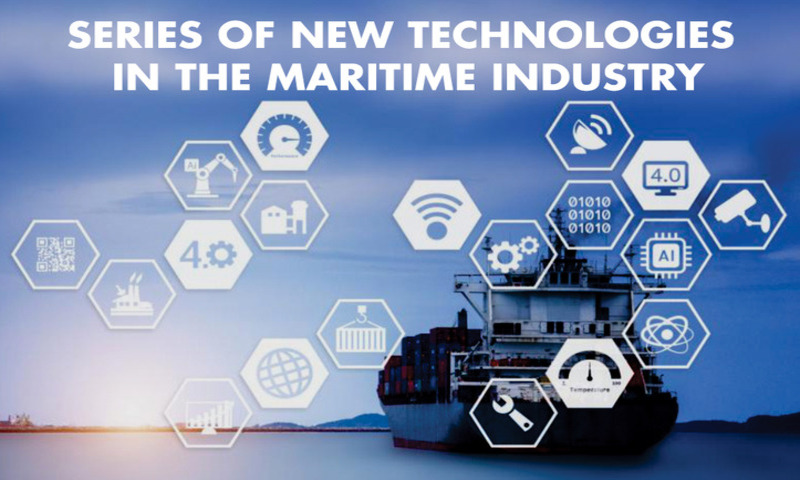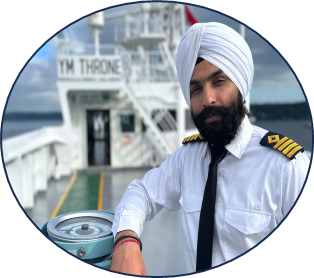AI's Role in Maritime Vessels

Introduction:
Maritime industry is responsible for transporting over 80% of the world's goods and has always been at the forefront of innovation. In recent years, the maritime industry is going through a tremendous changeover for various aspects of maritime operations.
These changes are governed by the technological innovations within the industry and the availability of for bandwidth on offer on the vessels. In this blog, we will discuss how Artificial intelligence is changing the maritime industry
Optimized Navigation:
In the past, navigation at sea was a combination of expertise, charts, skills and tools like sextants. Today, AI-driven navigation systems onboard vessels process a wealth of data in real-time, including weather conditions, potential navigational hazards, and the movements of other vessels. It also takes data from past voyage to review the vessel behavior and helps in determining better results. These systems then calculate the most efficient and secure routes, considering factors like fuel efficiency and voyage duration. This leads to cost savings and a smaller environmental footprint due to optimized fuel consumption.
Smart Vessels:
The concept of "smart vessels," is no longer confined to science fiction. AI technology is making autonomous maritime operations a reality. These vessels are designed to operate with minimal human intervention, offering several benefits. They can dynamically adjust their routes based on real-time data, optimizing fuel consumption and avoiding congested areas. Furthermore, autonomous ships have the potential to mitigate the risk of human error, a leading cause of maritime accidents. Various companies are at the forefront of developing this technology, showcasing the maritime industry's commitment to innovation.
Environmental Sustainability:
Carbon footprint concerns are at the forefront of the maritime industry's agenda. Machine learning algorithms analyze vessel data to optimize fuel consumption and reduce emissions. Additionally, with the use of new fuel type to reduce the carbon footprint. AI is determining how much the fuel is required and what will be the total carbon emissions for the voyage. By compiling the past voyage data for fleet AI suggest strategies for reduce consumption of fuel.
Conclusion
The maritime industry is navigating towards a future where AI is integral to the smooth operation of marine vessels. From AI-powered navigation systems and autonomous ships to predictive maintenance and eco-friendly technologies, AI is revolutionizing maritime operations in ways never imagined. While challenges like cybersecurity and regulatory frameworks must be addressed, the maritime industry's embrace of AI promises safer, more efficient, and environmentally sustainable journeys on the high seas. With AI as their ally, modern maritime vessels are setting a course for a brighter and more innovative future.

Capt.Tanvir Singh
I am an experienced Master Mariner. Have sailed in container ships ranging from 1500 - 14100 TEU through various ranks for the last 13 years. I am skilled at solving problems and resolving interpersonal conflicts. have management skils and can encourage team building. Have been a go getter and encouraged and punctuality in work place. Have demonstrated skills in implementing safety and security measures.
Leave a comment
View more
Give your career a boost with S&B professional services.
CV Prep/EvaluationMore Jobs
Ship management
Mumbai
Electrical Superintendent
Ports and Pilotage
Mombasa, Kenya
AGM / DGM
Agency and Logistics
Dubai
Director Operations
Interview Prep/Mentoring
Find your polestar with the host of experts available on our platform
Know more

